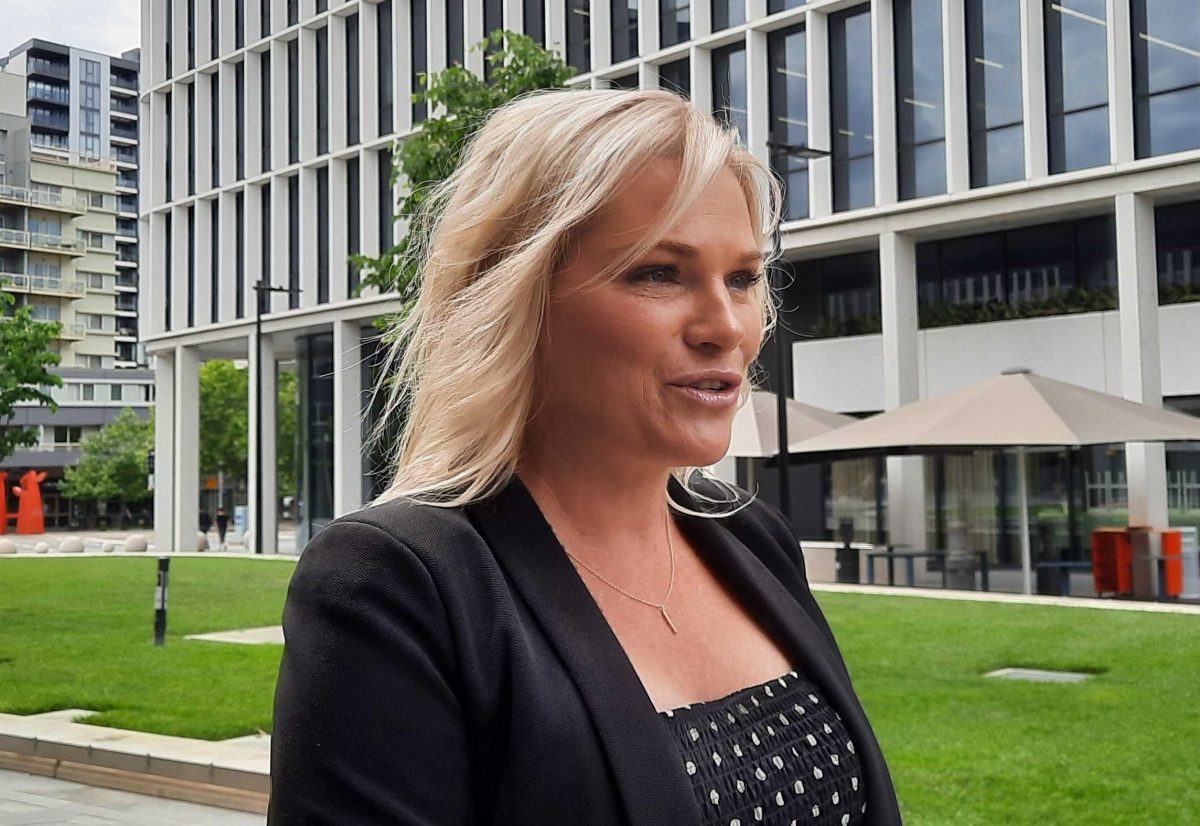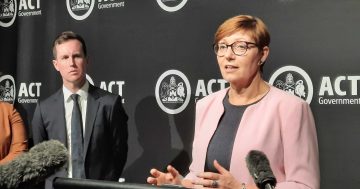
Canberra Liberals leader Leanne Castley was critical of what she felt was proof of Cabinet-document mismanagement by the ACT Government. Photo: Region.
Opposition leader Leanne Castley has pointed to a “horrified” public servant’s discovery of unsecured Cabinet documents as proof of the “complete farce that is Cabinet confidentiality”.
It comes after the release of an email from an executive in the ACT public service on 26 September 2024 in regards to an “important caretaker task” that needed to be resolved.
“I didn’t think I’d find anything when I went searching but was horrified to find a number of documents sitting in a range of places that dates way back to even before this term of government that I have had to delete,” they wrote.
The documents included drafts of submissions on shared drives and content management systems.
Teams were directed to check for and delete all Cabinet-related material. They were advised to check locations such as workspaces, filing cabinets, lockers, personal files and drives, TRIM containers, agency drives, OneDrive, SharePoint and files in Microsoft Teams.
Cabinet documents can include agendas, decisions, submissions, presentations, briefs, drafts and budget business cases.
Ms Castley said her party’s principal concern was that the government had refused to release certain documents as they were ‘Cabinet-in-confidence’, even though it appeared it wasn’t consistent with confidentiality obligations.
“These emails prove that the stories around Canberra about document mismanagement are true,” she said.
Ms Castley pushed Chief Minister Andrew Barr on this issue during the Legislative Assembly sitting week.
“Given these documents are the most sensitive documents in the ACT Government’s possession, why aren’t they being handled appropriately?” she asked.
Mr Barr answered that it was a “matter of concern” and one the Cabinet office was aware of and acting upon.
He also rejected the notion from Ms Castley that “it was a bit rich” to withhold Cabinet documents when “they were already sitting in a range of insecure locations”.
“I am not sure that you can equate the two,” Mr Barr responded.
“Nevertheless, security around Cabinet documents is important and I take that matter seriously.”
Directors-General and heads of agencies are required to ensure all Cabinet documents are accounted for and securely destroyed or stored before an election.
Directorates are required to prepare material for Cabinet discussions, and ACT Government information systems are used to prepare and store this material.
In response to further questions from Region, an ACT Government spokesperson said no further breaches of document storage were found following the 26 September email and everything was secured by 9 October 2024.
“A limited number of hard copy documents were securely destroyed in accordance with the Cabinet Handbook. These documents had been securely stored prior to their destruction before the 2024 election,” they said.
“Cabinet Office have contacted the executive and the directorate regarding the email and confirmed the audit of cabinet documents was completed and all identified files were destroyed or secured.”
The ACT Cabinet Handbook states the Cabinet secretary, in consultation with the Chief Minister, can decide whether a breach of Cabinet confidentiality is of “sufficient seriousness” to warrant an AFP investigation.
The government spokesperson confirmed it wasn’t deemed necessary to take such a step.
The Chief Minister had said during Question Time he felt having documentation in electronic form provided “greater security protection within a closed and secure system”.
The spokesperson said this also allowed for a greater degree of access control and auditing of systems.
“Hard copy documents are harder to secure and less readily auditable for access,” they said.
“The directorate has confirmed they have appropriate processes in place to manage access to Cabinet information, including use of approved record management systems with dissemination limiting markers, access controls on a need to know basis, watermarked PDF copies of documents, a printed document register for tracking printing and destruction and reminding staff of obligations to maintain appropriate security for cabinet documents.”
Original Article published by Claire Fenwicke on Region Canberra.










